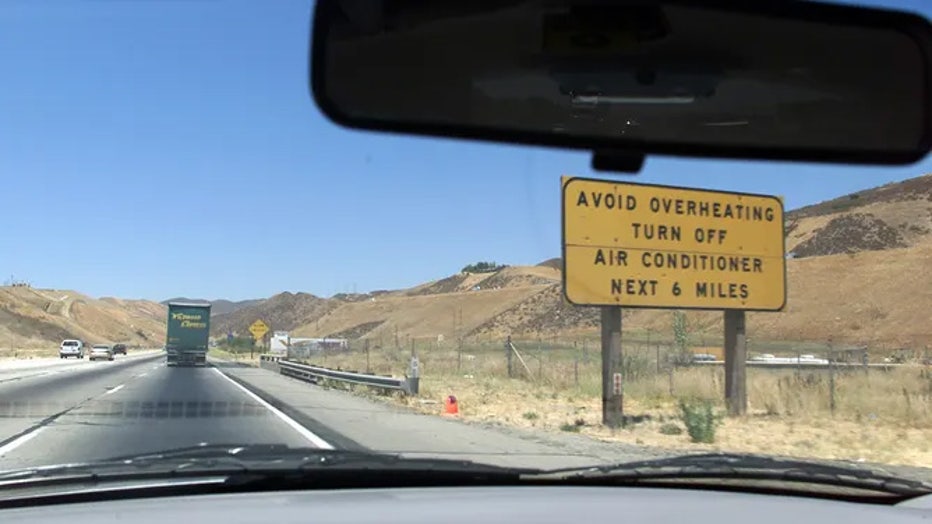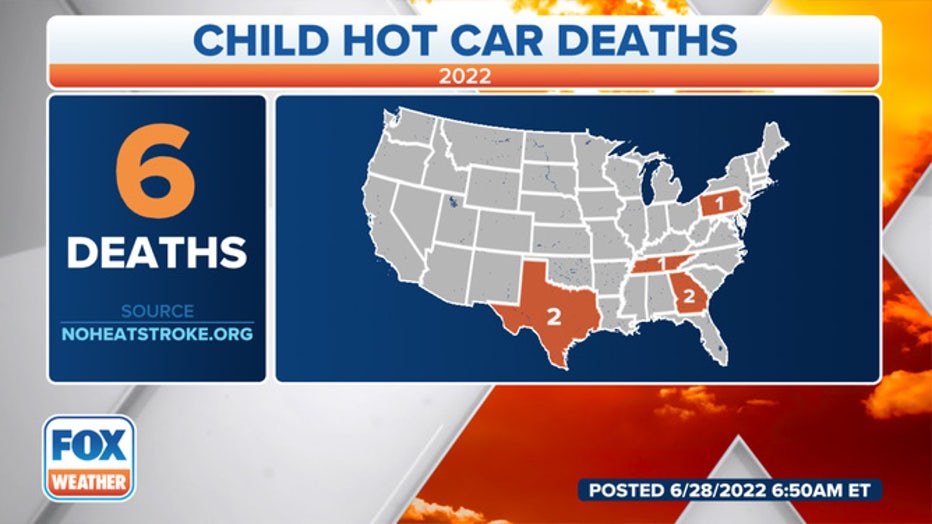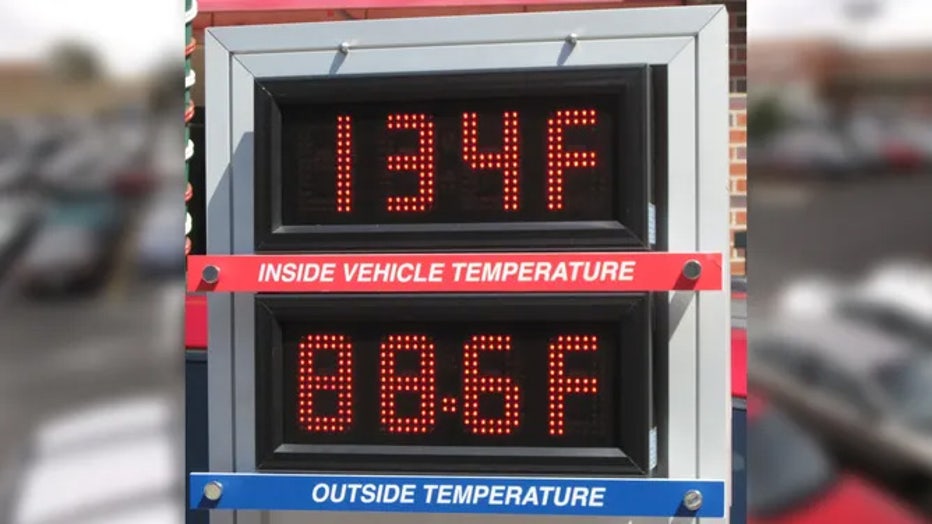Drive into summer prepared: 5 things to know when you hit the road in extreme heat
Thermometer in front of cars and traffic during heatwave in Montreal. (iStock / Getty Images Plus)
Driving during the summer months poses some unique dangers to vehicles and passengers, but keeping you and others safe all comes down to preparation.
"Making some preparations right now could go a long way to having a successful trip," said Laura Adams, a senior safety analyst at Aceable, an online educational platform and resource for drivers.
HOW TO WATCH FOX WEATHER ON YOUR TV
Blowouts and the changing road
It is important to make sure your tire pressure is at the right level whenever you're driving in extreme heat.
Excessive heat can cause your tire pressure to temporarily increase. For every 10 degrees of increased temperature, your tires can be expected to increase by 1-2 pounds of pressure.
HOT WHEELS: HOW TO PREPARE YOUR CAR FOR SUMMER TRAVEL
Low tire pressure in combination with hot temperatures can be the perfect recipe for a tire blowout.
"This is one thing that drivers really need to pay especially good attention to," Adams said.
Whether it’s high heat or freezing, extreme temperatures can affect the roads you’re driving on by causing the asphalt or the concrete to change underneath you.
"So you want to be aware that not only can your tires and your vehicle change, but the road surface that you’re on can change very quickly," Adams said. "So watch out for any cracks in the road, potholes, trying to avoid them as best as you can."
EXTREME HEAT CAUSING SOME ROADS TO ‘BLEED’ OR BUCKLE IN PARTS OF US
Overheating

A sign at the start of the climb on the northbound Interstate 5 north of Castaic, California, warns motorists on how to avoid overheating their cars. (Myung J. Chun/Los Angeles Times / Getty Images)
If you see that your engine overheating light is on, take it seriously.
"Pull over right away," Adams warns. "Give your car a little bit of time to cool down."
You will want to turn off your air conditioning system, and, in some cases, it may even help by turning your heat on.
HEAT MAPPING CAMPAIGN HOPES TO SPREAD AWARENESS ABOUT COUNTRY’S TOP WEATHER-RELATED KILLER
"That may sound counterintuitive, but turning on the heat can actually draw heat away from the engine and bring it into the interior of the car," Adams said. "It may feel a little uncomfortable, but it can go a long way to helping your car cool down if you’re in an emergency situation."
Kids and pets

(FOX Weather)
When traveling with young children or pets, preparing for their comfort is imperative.
"You might want to bring a little dog bowl with you so that your dog has the ability to drink water and have plenty of fluids available for your children," Adams said.
Adams reminds drivers to never children or pets alone in the vehicle, even for a few seconds. Even with cracked windows, remember that temperatures inside your car can increase quickly.
MINUTES MATTER: WHAT YOU SHOULD DO IF YOU SEE A CHILD LOCKED IN A HOT CAR
Even on a mild day when temperatures are around 70 degrees, the temperature inside a car can reach up to 120 degrees in no time at all.
There have been six U.S. pediatric vehicular heatstroke deaths this year. The most recently confirmed was a 3-year-old boy who died when outside temperatures reached 95 degrees in Columbus, Georgia.
According to NoHeatStroke.org, the children that have died from vehicular heatstroke in the U.S. (1998-2021) have ranged in age from 5 days to 14 years. More than half of the deaths (54%) are children under 2 years of age.

Every year on average, 37 children die in hot cars. (Photo illustration / FOX Weather)
Emergency kit
Do you have what you need in your car in case of a breakdown?
This might be bottles of water, snack bars, cables for charging things like an extra cell phone battery, or a flashlight.
"Having that ready is going to mean the difference between a very uncomfortable situation or staying safe and getting through it calmly," Adams said.
Level up your skills
During the summer, new teen drivers are often on the road with you.
You will want to watch out for drivers who are distracted by their phones, look like they’re just not paying attention, or are inexperienced.
If you’re not sure how to drive during the summer, it might be a good idea to take a defensive driving course. It will help you understand potential hazards and how to avoid them.
Aceable.com offers education courses to level up your skills and ensure you’re prepared to have the safest road trip possible.
LINK: Get updates on this story from FOXweather.com

